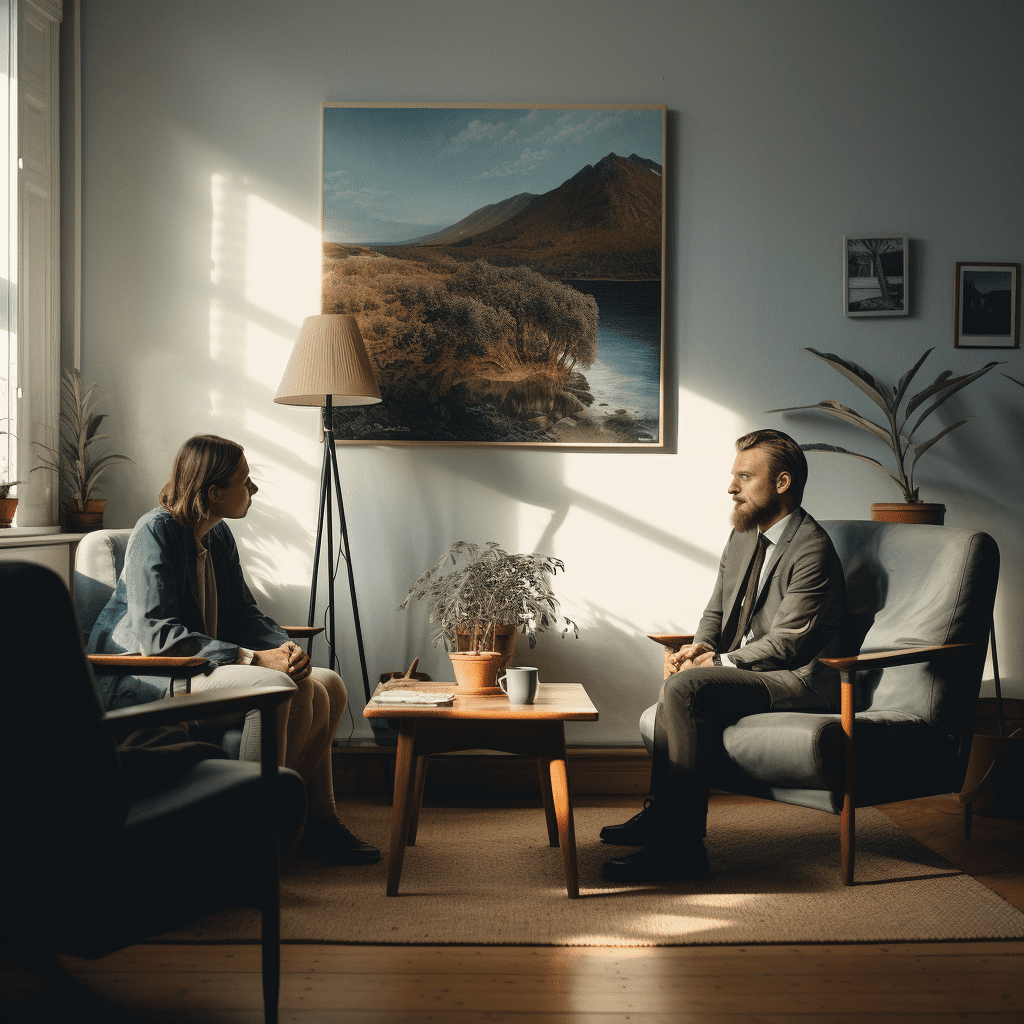
Psychological Therapies For Anxiety
Unlike anxiety medications, psychological therapies treat the root cause of your anxiety symptoms. They teach you to face your fears, relax, and view situations in a different light.
The success of anxiety therapy depends on the ability to identify negative thoughts. Using https://radiantflow.sg, you can be connected with licensed, accredited therapists who specialize in anxiety disorders.
Medicines
Anxiety medication can be an important tool in treating anxiety disorders. This is especially true when used in conjunction with psychotherapy. But for most people, therapy–or talk therapy, as it is sometimes called–is the mainstay of treatment. Over the years different therapeutic techniques, from psychoanalytical to cognitive behavioral therapies, have been developed.

Some level of anxiety or stress is a normal, even healthy response to life events. But persistent and severe anxiety can be debilitating. Untreated, it can lead to depression, poor quality life, insomnia and even substance abuse. In some cases, anxiety can become a chronic illness, such as panic disorder or a phobia.
Before you take anxiety medication, your therapist will discuss the pros and cons of the medication with you. He or she will also evaluate your reaction to the medication and determine whether you need a higher or lower dose. He or she will explain how to take the medication and may ask you to keep a diary to track your symptoms.
In most cases, anxiety medication is given on an outpatient basis. Your therapist might admit you to hospital for a few days if your anxiety disorder is accompanied by suicidal feelings or significant comorbidity such as depression or personality disorders.
In addition to anxiety therapy, there are a number of self-help treatments that can help you manage your condition. Regular exercise, meditation or taking time to do something that you enjoy such as music or art can be helpful. A journal, group therapy, or learning about your anxiety can also be beneficial. The key is to find an approach that works for you and stick with it.
Psychotherapy
A well-trained therapist can teach you coping skills to address anxiety symptoms, including learning how to control panic attacks. Therapists may also use cognitive behavioral therapy (CBT) to help patients change unhealthy patterns of thinking and behavior that exacerbate or trigger anxiety. CBT is based in the observation of how what people think and do directly impacts how they feel. Its main aim is to teach patients how to challenge irrational, negative thoughts and replace them with more realistic, calming ones.
Cognitive behavioral treatment for anxiety focuses on the three major components of this disorder: worry, physical arousal (or edginess), and avoidance. The first step involves teaching you a program of relaxation skills that have been researched. Your therapist will help you practice these skills in sessions and at home. The therapists then address the root cause of the problem, a misperception of danger that exaggerates threatening situations and triggers negative feelings. This is achieved by giving you a tour of the types of thinking that magnify fear and anxiety and then teaching you to identify and correct those distortions. Some therapists also use exposure therapy, which involves gradually subjecting you to what you are afraid of-for example, dogs or airplane flights. This is one the most effective behavioral treatment for phobias and post-traumatic stress disorder.
People with anxiety can benefit from interpersonal therapy (IPT). This approach, originally developed to treat depression, can also be used to help treat social anxiety and other panic disorders. IPT aims to teach you coping skills that you can apply in your daily life, such as how to communicate with others in healthy and productive ways.
Medications are only one part of treatment for anxiety, and it is important to see your doctor or a mental health professional for a thorough evaluation. They can help determine the best type of therapy for you.
Group therapy
Group therapy is a form of mental health treatment in which people with similar problems meet together. During this type of treatment, you learn to communicate with other people in a safe environment and work together to overcome anxiety-related issues. You gain confidence as you learn to deal with difficult situations. The goal of group therapy is to improve your quality of life and increase your self-esteem. The therapy is often less costly than individual sessions with a therapist.
Anxiety groups are usually cognitive-behavioral, involving techniques such as identifying and challenging negative thought patterns. The therapist can also help you practice your new behaviors in a group setting. Positive feedback from the therapist and other members is likely to reinforce these skills.
Anxiety group therapy also helps to reduce feelings of loneliness. Individuals with anxiety often feel isolated in their struggles. Interacting with other people who have the condition can help reduce these feelings and create a sense community.
A group therapy session can also help you to become more comfortable in expressing your emotions. You can also build a stronger identity by sharing your problems with strangers. It can also teach you to recognize and accept your negative thoughts.
During group therapy, you will be asked to describe your symptoms. She will ask you how these symptoms impact your daily activities and your relationships. This can help you develop a more accurate picture of your condition and identify the sources of your anxiety.
You may also engage in imaginal exposure and in vivo exposure as part of your therapy. These exercises are designed to reduce your fear of social situations by exposing you to them in small doses. The therapist will gradually increase the intensity of these activities until you can face your fears without anxiety.
In addition, a psychodynamic therapist will use group therapy to help you understand your childhood experiences and determine whether these are linked to your current anxiety disorder. This type of therapy is less structured and requires you to share your feelings with others.
Self-help
There are many self-help treatments for anxiety that have been shown to be effective. It’s important to keep in mind that these treatments are best used in conjunction psychotherapy. A therapist can help you understand your disorder and teach you skills to manage it. A therapist can also teach healthy ways to cope stress and anxiety.
Self-help techniques can include cognitive behaviour therapy (CBT), mindfulness, relaxation training and relaxation training. These techniques are designed to help you change the way you think and behave. In addition, they can improve your overall mental health by reducing the frequency and duration of anxiety symptoms. They can also promote a healthier lifestyle through exercise, sleep and good nutrition.
During the first session, you will be asked questions about your life. Your therapist will also ask how you feel. They will also ask you to make a note of when your symptoms appear, what makes them worse or better, and how it affects your daily activities. In addition, they’ll want to know if you have any traumatic experiences or a family history of mental health problems.
CBT is a highly effective treatment for anxiety. It teaches you to recognize and challenge irrational thought patterns and beliefs that cause anxiety. You and your therapist can work together to achieve this collaborative process, either face-to-face. CBT is a widely used treatment for anxiety and is often combined with medication.
Schema therapy can also be useful in treating anxiety. This involves sharing memories of traumatic incidents with a professional. The therapist will direct your eye movements to help you reprocess the memory and restore it in a positive light. It’s also known as “memory reconsolidation.”
If you suffer from anxiety, it is important to seek treatment as soon as possible. Untreated anxiety can cause insomnia, depression, and a poor quality of life. In some cases it can even lead to physical illness. Exercise, caffeine avoidance, and spending time around supportive friends can help relieve anxiety symptoms.

